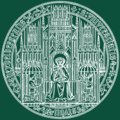In chemical reactions, molecules form or break on a time-scale of femtoseconds. The underlying electronic motion proceeds on an even shorter time-scale of attoseconds and is governed by the laws of quantum mechanics. In a unique combination of novel many-particle imaging techniques ("Reaction Microscopes") with femto- to attosecond pulses produced by femtosecond lasers as well as by multiply charged ion beams at the Max Planck Institute for Nuclear Physics (MPIK) and GSI Helmholtzzentrum für Schwerionenforschung (GSI), ultra-short quantum dynamics can be explored on a hitherto unreachable level of precision and completeness. In the future, we seek to resolve, understand, and control increasingly complex scenarios including chemical and biological quantum dynamics. Experiments at the new European XFEL shall further supplement the applications for biological systems. On the theoretical side, related quantum dynamics of single atoms, molecules and clusters in interaction with various short-time external fields will be propagated mostly numerically at Heidelberg University and the MPIK. This includes Non-Born-Oppenheimer studies of the interplay of rotation, vibration and electron dynamics in small molecules, attosecond probing of vibrational dynamics with high harmonics, interatomic Coulomb decay in clusters and time-dependent density functional approaches for many-particle quantum systems.






